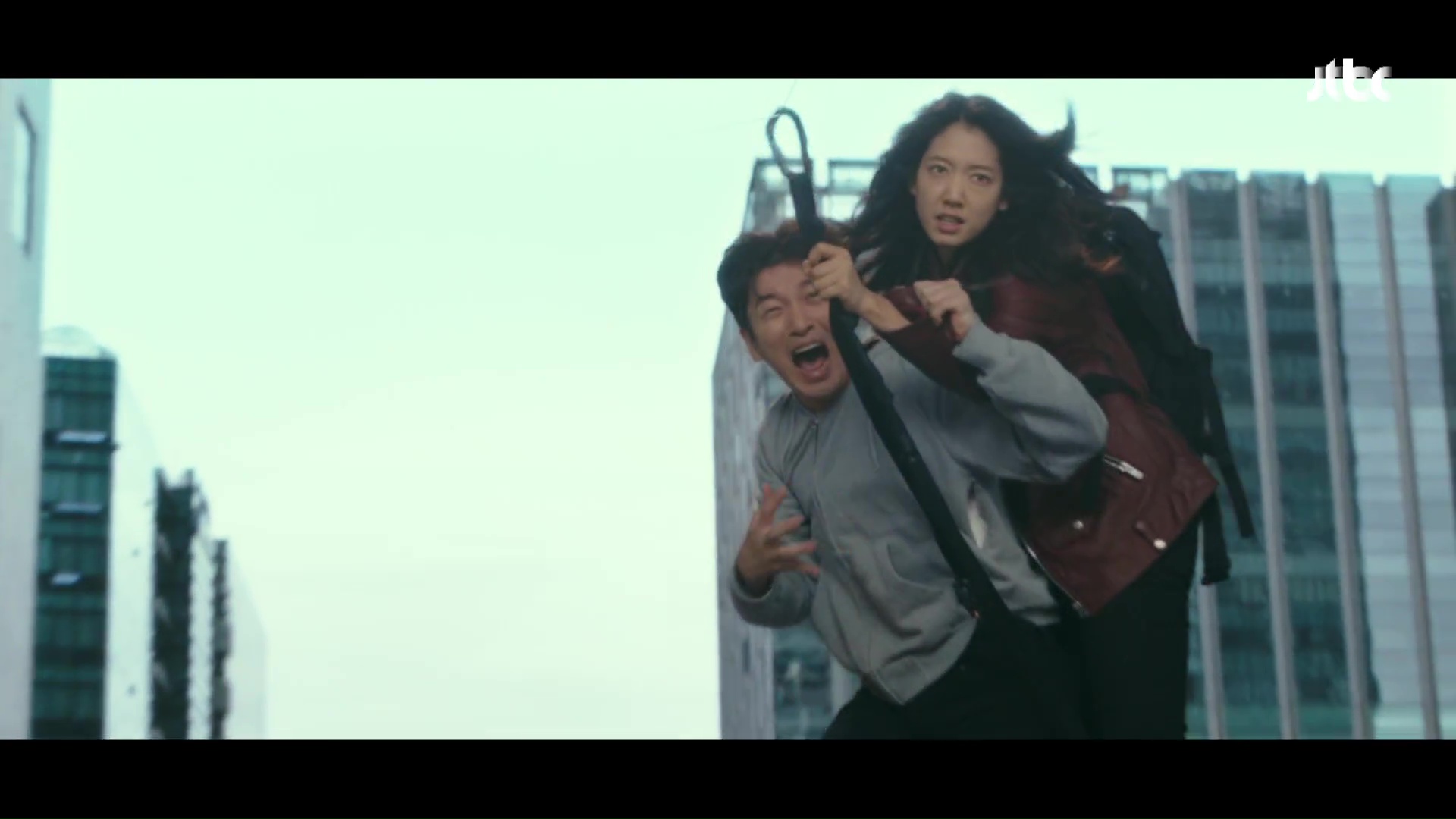
TYPE OF REVIEW ![]() : GOOD OL’ REVIEW
: GOOD OL’ REVIEW
Minor spoilers.

Time traveling stories can get tricky. Television series involving time travel and the like usually require a certain level of commitment and faith from both the viewer and the team bringing the story to life. Because of that, these series can be either hit or miss. There’s usually no in between. Until JTBC’s Sisyphus: The Myth (시지프스: the myth) that is. This ambitious, high concept series features a strong cast and high production value. But that merely allows the series to spectacularly get lost somewhere along the way. It is almost a case of style over substance as Sisyphus is a disjointed and unbalanced series that never commits to what it wants to be. And in turn, gets its wires crossed in a way that it unfortunately is unable to untangle by the time it reaches its baffling and unsatisfying end.
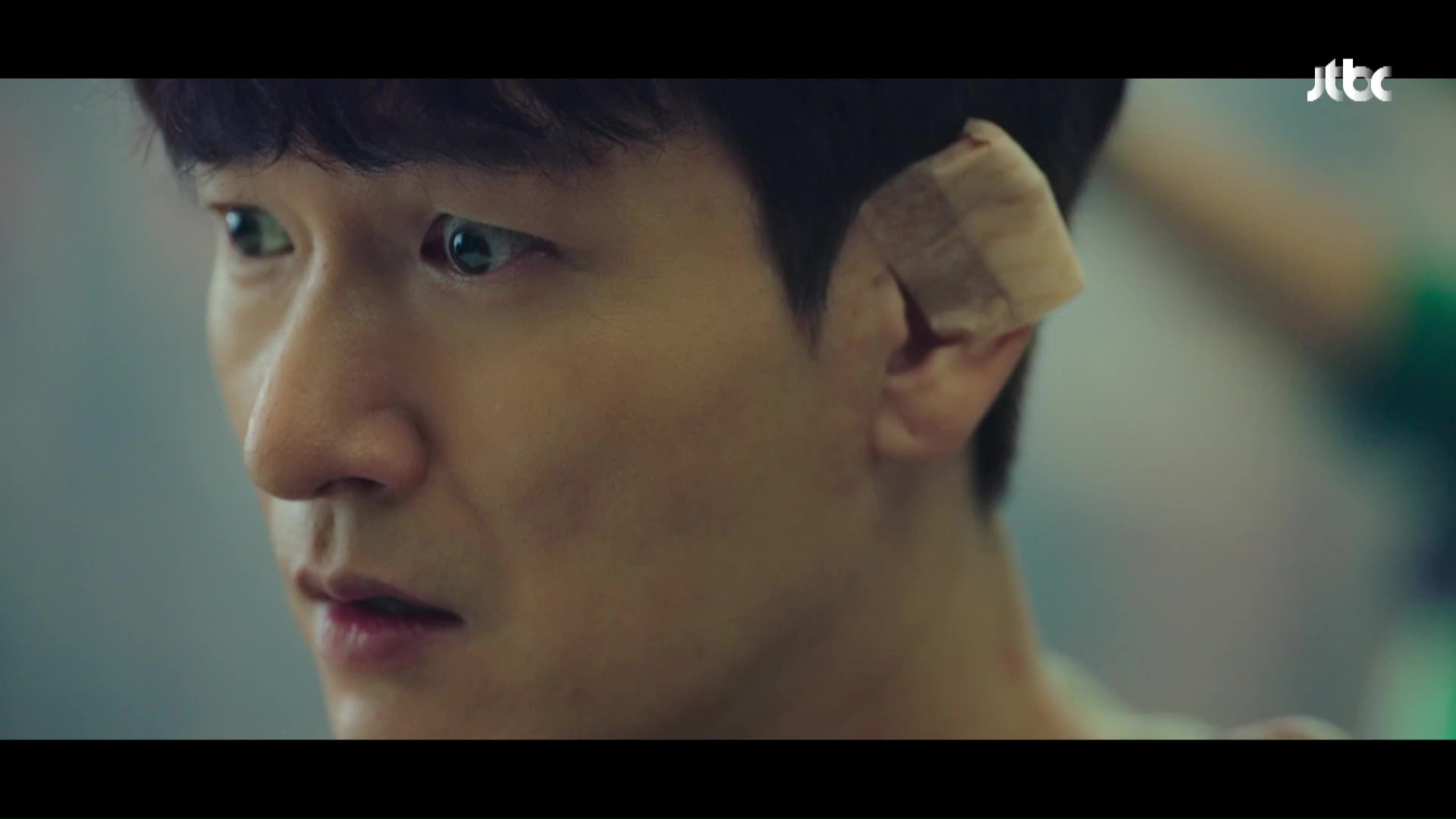
Park Shin Hye is Kang Seo Hae, a young woman from a post-apocalyptic future Korea who travels back in time to the year 2020 in order to protect genius engineer Han Tae Sul (Cho Seung Woo) in order to stop a nuclear war that ravages the country.
It seems like a simple, though straightforward premise. One that is a perfect jumping off point for some action-packed sci-fi adventure. If only that were the case.
Sisyphus suffers from a tonal imbalance that only gets worse as the series progresses. The series starts off with an exciting sequence that eases into the idea of time travel as well as the life and death mission Seo Hae seems to be on. The character of Tae Sul and his own backstory is also intriguingly touched upon. Together, it would seem to create a narrative ripe for an emotionally-charged race to save the world.
But after its first episode, Sisyphus takes a while to actually settle down. And once it does, it might have already gotten itself and you the viewer quite lost. The series never seems to strike the right tone, trying to shift from pure sci-fi action to lighthearted, fluffy romance to conspiratorial corruption drama to police procedural.
And then the series abruptly shifts between present and future with little warning or even relevant context. This is partly where commitment from the viewer kicks in. But once things appear to start being pieced together, it feels more like forcing those pieces to fit into similar, but not quite the exact shape spots on the puzzle.
Again, stories involving time travel require extra care in weaving together all the moving parts, more so than a typical drama series. Sisyphus does not do that, resulting in a perceived lack of focus and direction. The series devolves into a mish-mash of themes, ideas and scenes.
Very pretty and well-choregraphed scenes. But a mish-mash, nonetheless.
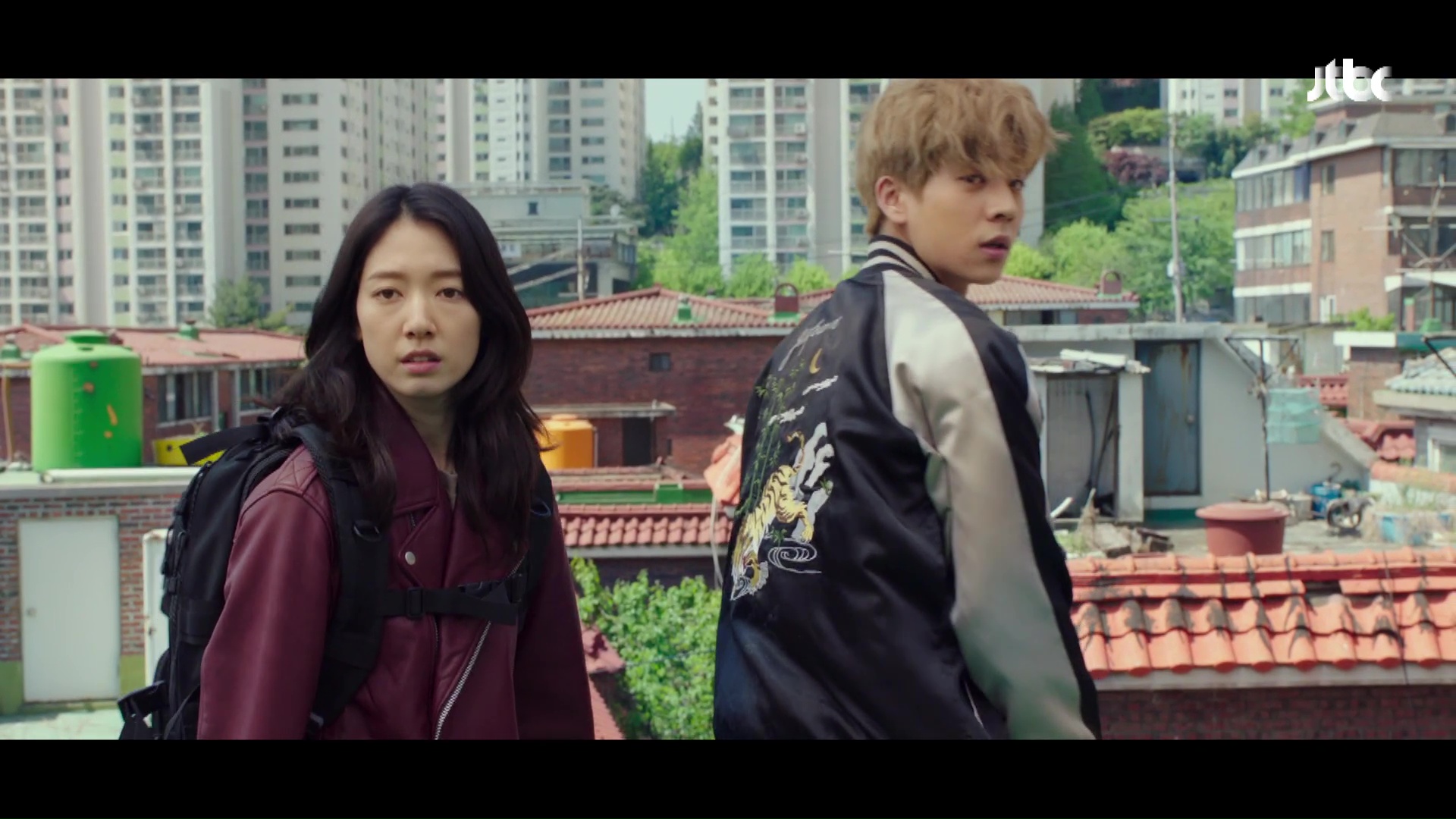
The series actually does individual themes quite well on their own. The basis for time travel is as sound as you can realistically make it. The action scenes are top notch with especially great (and surprising) work from Park Shin Hye. The corporate drama is deliciously soapy. Scenes of post-apocalyptic Seoul are visually striking. And the idea of romance is interesting, though slightly contrived. (More on that later.) There’s even a hint of zombie-like danger that gets unceremoniously dropped a third of the way through.
If this were a series solely about people surviving in a lawless post-nuclear war Seoul? That would be amazing! If the series were mainly about stopping that nuclear war from even starting, regardless of the side consequences of changing the future? Great!
But Sisyphus cannot weave all those parts together into one cohesive presentation. And that’s aside from struggling to weave together the details of the time traveling aspect of the story. The aforementioned puzzle pieces getting forced into place often appear more as deus ex machina/gotcha twists rather than enlightening “Aha!” moments of realization. Throw in some glaring plot holes, mostly relating to the time traveling and its consequences, and the narrative wobbles on shaky ground.
What threatens to collapse the entire thing is actually the romance that predictably develops between Seo Hae and Tae Sul. It ends up feeling forced and unnecessary. It should be something that develops and unfolds naturally in the midst of saving the world from disaster. Instead, it suddenly overwhelms the narrative without foundation and pushes aside everything else in order to make it the central focus.
But the catch here is that the series implies the two are somehow destined for each other. And that their fateful love is forged somewhere in the spacetime continuum that, in proceeding along the present timeline, hasn’t happened yet. That implies we’ll circle back to it as a time traveling loop emerges and multiple versions of the same person seem to exist at any one time. But the series never does that. And instead, by the end you just come to accept that the epic romance across time exists because you were told it does throughout the series.
What keeps the puzzle tower from completely collapsing is its cast and production. The series has the aura of a high budget production. Again, the scenes of post-apocalyptic Seoul are well done. The action scenes are explosive and well-choreographed, though they taper off toward the end as well.
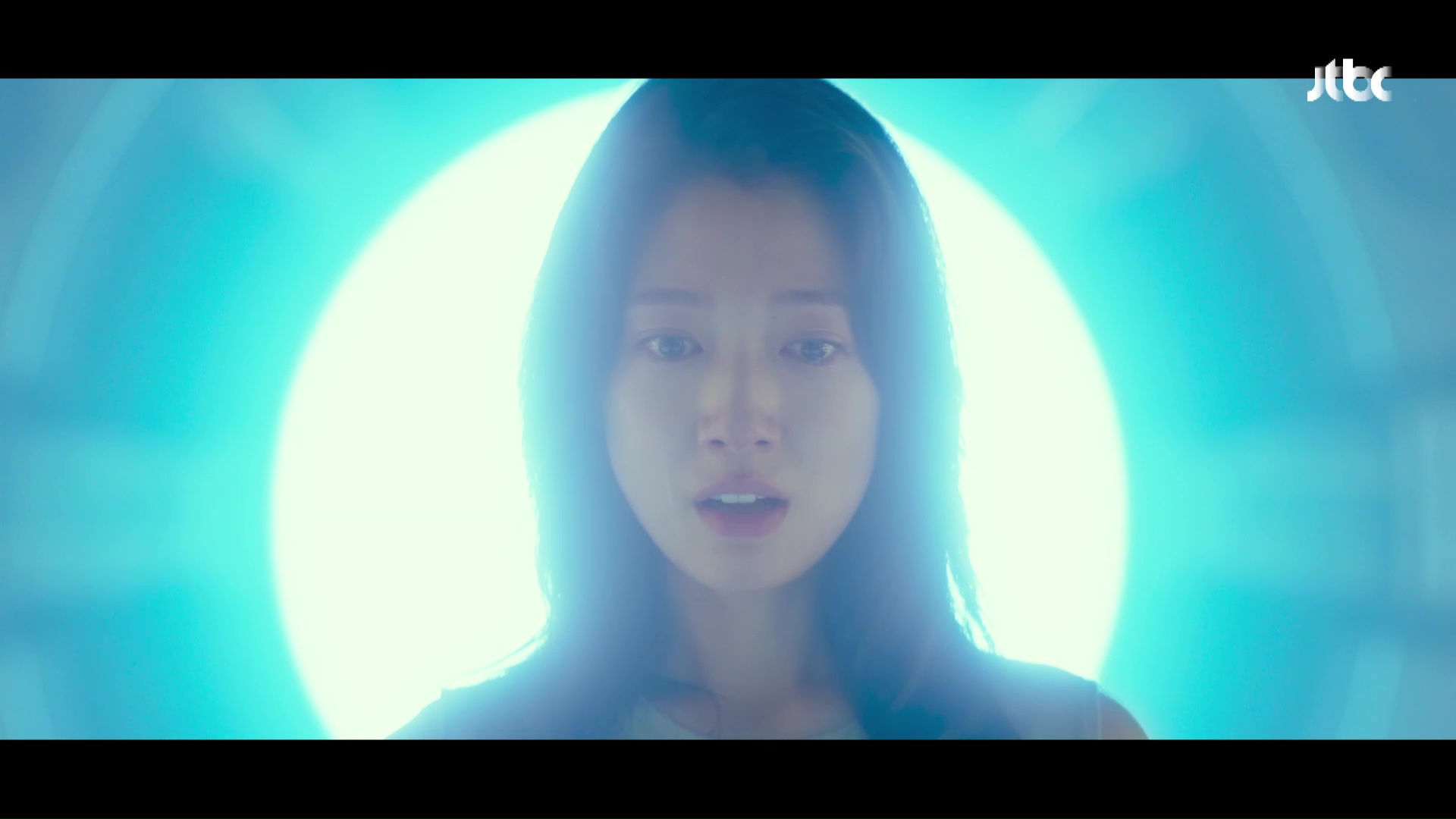
And the cast is a solid ensemble. Park Shin Hye is especially a revelation here. Though I have not watched many of her series, seeing her as badass Seo Hae is a pleasant surprise. She is able to effectively bring to life this strong, kick-ass heroine. And in a way, it is disappointing that the series isn’t just focused on her saving the world. Or how they bog her character down by the contrived romance fluff.
Cho Seung Woo, meanwhile, does a solid job as popular, though standoffish genius engineer Han Tae Sul. But much of the way through, he gets tasked with having to elevate the character on his own, which he is able to do. And it is quite necessary when the character lacks true development and a distinct foundation to provide real depth.
Meanwhile, it’s hard to say the chemistry is there for our romantic leads when the writing is not there to back-up the supposed epic romance.
Chae Jong Hyeop is likeable and endearing as the familiar third wheel Choi Jae Sun. And Tae In Ho is absolutely wasted as Tae Sul’s friend and second in command Eddie Kim, a character who probably has the most potential left on the table in the entire series.
Veteran Sung Dong Il is dynamic as Park Hyeong Do, a broker for the so-called illegal future immigrants who travel back in time. But his character, like so much else in the series, falls apart in the end.
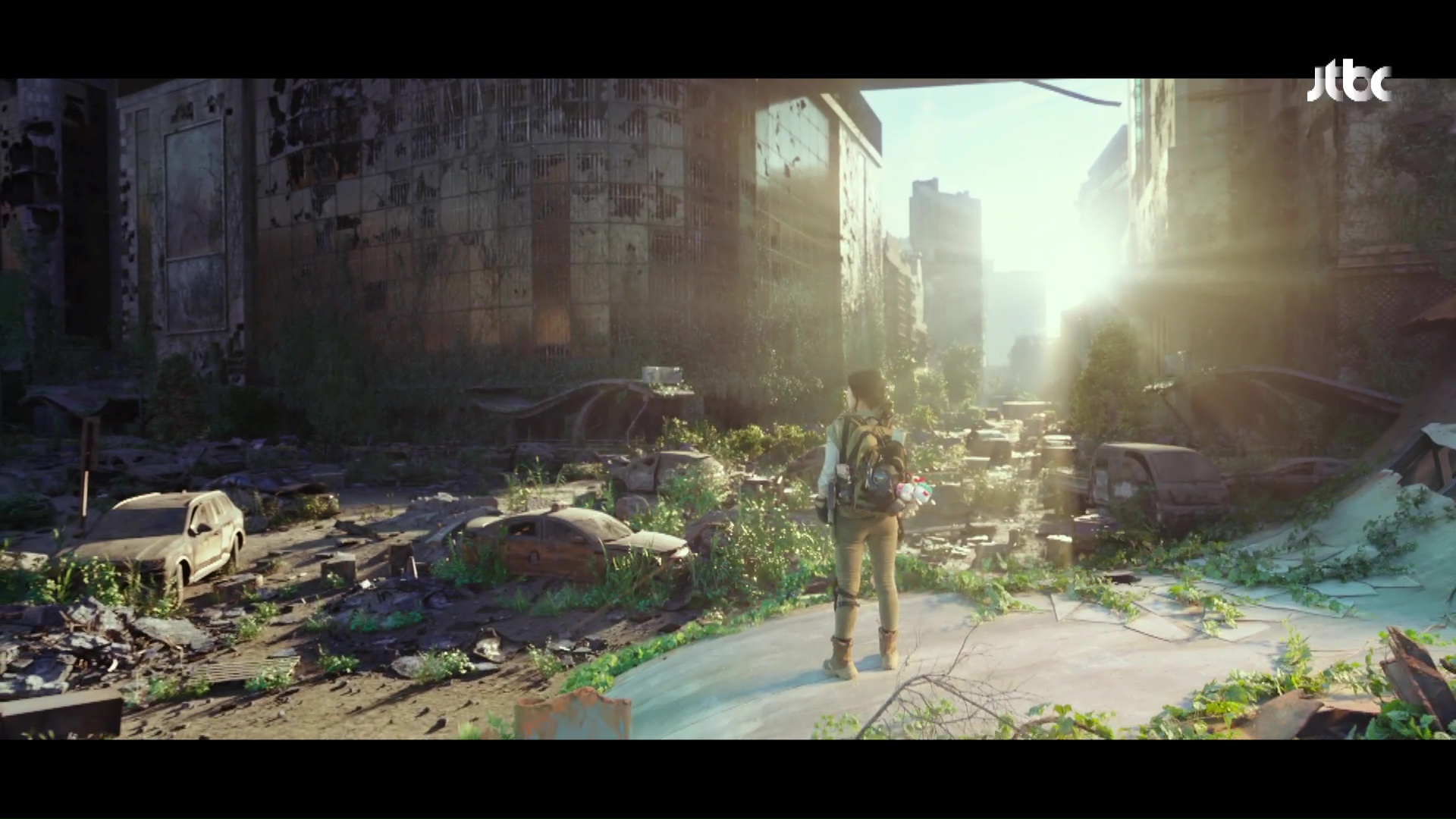
And that’s the series’ biggest problem. Sisyphus: The Myth is aptly titled. It is a high concept boulder that they repeatedly try to push up the hill. But increasingly over the course of the series, it is unable to hold up the weight of everything that it tries to be, but does not follow through on. Piling on themes and plot points that never intersect in a cohesive way and not being able to keep its time traveling shenanigans in line is bound to make the entire thing collapse. And it somewhat does, but is ultimately held together (though flimsily so) by a solid cast, exciting action sequences and some stunning set pieces. Unfortunately, that’s not enough to make for a satisfying experience. And instead, the series ends with confusion and regret on what could have been.
Share:
Related posts ..
2 thoughts on “Good Ol’ Review: JTBC’s “Sisyphus: The Myth” Gets Lost in Its Own Convoluted Time Traveling Shenanigans”
Share your thoughts!Cancel reply
This site uses Akismet to reduce spam. Learn how your comment data is processed.

Chae Jong Hyeop is the only reason to watch this show. WTF it was trash! Thank goodness for his sexiness.
I did not enjoy this show at all